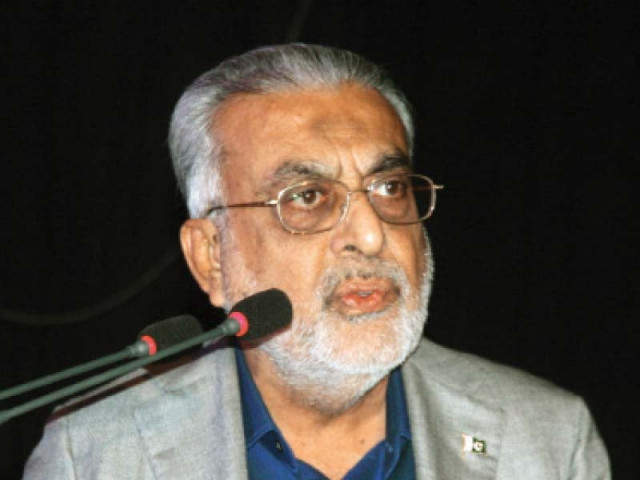The curious case of Karachi’s police
Jamil Yusuf reflects on the laws governing the police and the reforms needed in the department

Jameel Yusuf
Seemingly a staunch critic of time constraints against topics that need immense consideration, Citizens Police Liaison Committee founding chief Jamil Yusuf still had a reason to be submissive and go ahead with his long presentation in the 20-minute slot. He did not want to involve police, as his topic was, in some dispute as it already had much of it.
Thank God that Quaid-e-Azam is not here today, he sighed, because had he been here, he would have lamented at what we have done to the country he created. There are reasons for this belief, plenty actually. But specific to the subject was the first duty of a state, as envisioned by the Quaid, which was never fulfilled sincerely — to maintain law and order.
Who will guard the guards? Half of Karachi’s police stations working under dirty cops
Despite the fact that a bill proposing reforms in the policing system was passed by the first legislative assembly of the province, it never went on to become an act for more than five decades, deplored Yusuf. “We still use an inspectorate system for policing, oblivious to the fact that it was made for colonies,” he said.
When Pakistan was created, there was a need for democratic models of governance to be followed here, he said. “At the time, the Bombay District Police Act was being followed here,” he said. “So the legislative assembly passed a bill for [the] metropolitan police on February 7, 1948, to introduce a modified model of law enforcement.”
The bill was sent to the governor-general’s office — Quaid-e-Azam was the governor-general at the time - for approval but was returned, he recalled. The governor general’s legal advisor had made some corrections in it and had asked that a fresh copy be submitted. “Then the bill never saw [the light of day].”
SC displeased by police habit of declaring cases ‘A-class’
According to Yusuf, the documents were deliberately hidden by the politicians and bureaucrats who did not want to slash their powers.
Suggestions
Moving ahead with his presentation, Yusuf urged for immediate reforms in the policing system. At first, the ratio of police to civilians should be brought down, he said. “[Right] now, there is one police official for every 950 people. There should be a ratio of 1:275, which is a standard across the world.”
We need to induct more officers in the police, he maintained, adding that young graduates should be enlisted in the force. “A special course [should] be designed for those studying at varsities and they [should] be offered jobs in the police.”
Sindh Police to establish ‘Witness Protection Unit’
He lamented that post 9/11, the world has started intensifying its intelligence system and, here, we take the department as non-cadre. “To cope with the ever-hovering threats of terrorism, an independent intelligence department should be made,” he said. “The intelligence service of Pakistan should be made an occupational group of the Central Superior Service.”
Moving on with his suggestions, he recalled that in the probe of the murder of Wall Street journalist Daniel Pearl, a team of the Federal Bureau of Investigation joined the local investigators. “They had especially trained personnel for each and every work,” he said. “The man who made sketches was as experienced as he would have been doing the same job for the past 50 years. So did others. In short, they were at [their] best.” Such programmes should be taught to policemen here as well if we really want to bring reforms, he added.
Moreover, he lamented that there was a lack of coordination between the departments pertaining to law enforcement and punishment. “Judiciary, prosecution, police; all seem to work against each other. They don’t have any coordination system.”
Two police personnel shot dead in Karachi
Concluding his suggestions, he touched on almost all the aspects of policing but added that we [the people] talk a lot but do nothing.
Published in The Express Tribune, November 8th, 2015.



















COMMENTS
Comments are moderated and generally will be posted if they are on-topic and not abusive.
For more information, please see our Comments FAQ